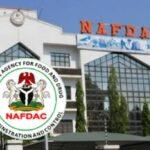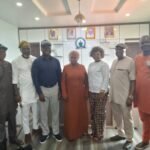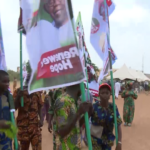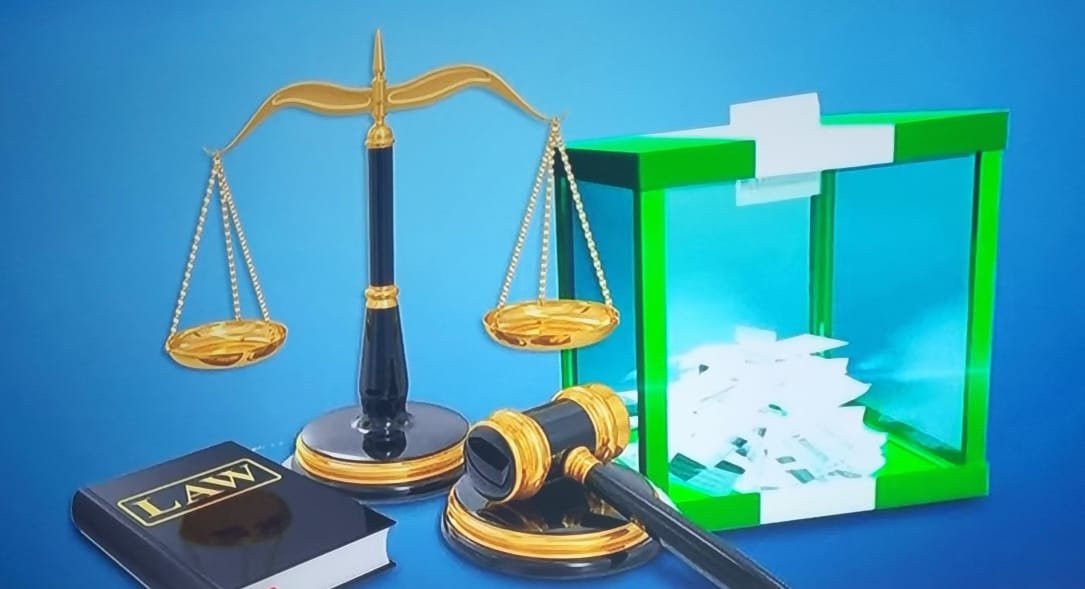
By Dr Sonny Onyegbula
Electoral jurisprudence, the body of law that governs electoral processes, is a vital component of democratic governance, ensuring the legitimacy and credibility of elections.
Nigeria, like other democracies, has been evolving its electoral jurisprudence since its return to democracy in 1999.
However, the country’s electoral jurisprudence faces challenges, including judicial independence and impartiality concerns.
This article examines Nigeria’s electoral jurisprudence, comparing it with the US, UK, India, and South Africa, and provides recommendations for improvement.
Nigeria’s democratic journey, a testament to its people’s unwavering resilience and indomitable determination, has been a long, winding road marked by significant milestones and challenges.
The country’s transition from military rule in 1999 was a monumental breakthrough, ending decades of authoritarian governance and paving the way for the current era of democratic governance.
This context is crucial to understanding the development of Nigeria’s electoral jurisprudence; a key player in this transition was the establishment of the Independent National Electoral Commission (INEC) in 2000.
INEC, as the electoral management body, provides a legal framework for conducting elections, registering political parties, and resolving electoral disputes, among other responsibilities.
Since then, Nigeria has conducted several presidential, gubernatorial, and legislative polls.
These elections have been marked by varying degrees of success, with some being hailed as relatively free and fair, while allegations of fraud, voter suppression, and violence have marred others.
However, it’s important to note that civil society organizations and citizens have not been passive observers.
They have played a crucial role in monitoring these elections, raising awareness about electoral malpractices, and advocating for electoral reforms.
Their active participation has significantly contributed to the evolution of Nigeria’s electoral jurisprudence, underscoring the transformational power of public engagement in the democratic process.
Despite progress, Nigeria’s electoral process remains contentious, with disputes and litigation commonplace.
The country’s electoral jurisprudence has been significantly shaped by landmark court decisions, which are rulings that establish new legal principles or significantly interpret existing laws.
These decisions, including the Supreme Court’s judgement in the 2008 and 2019 presidential elections, have profoundly impacted the country’s electoral landscape, shaping the legal framework for electoral disputes and the role of the judiciary in resolving them.
However, challenges persist, and Nigeria’s electoral process remains vulnerable to manipulation, corruption, and political interference.
These challenges, such as the lack of clear guidelines on campaign financing and ambiguous electoral laws and regulations, have led to confusion, disputes, and allegations of financial impropriety.
The electoral commission, INEC, has faced criticism for handling elections, with accusations of bias, incompetence, and corruption.
These challenges highlight the urgent need for improvement in Nigeria’s electoral jurisprudence.
Against this backdrop, the potential for a comprehensive overhaul of Nigeria’s electoral jurisprudence is necessary and a beacon of hope.
The country has the opportunity to build a robust and resilient electoral system capable of withstanding the challenges of a rapidly changing political landscape.
This potential for change, this beacon of hope, inspires optimism for a brighter future.
Nigeria’s electoral jurisprudence has faced challenges since 1999, with the judiciary playing a crucial role in shaping the electoral landscape.
Despite progress, concerns persist about judicial independence and impartiality, particularly in electoral matters.
The Supreme Court, as the highest judicial body, has delivered notable judgements that have significantly influenced the interpretation and application of electoral laws.
Notable cases include Atiku Abubakar v. INEC (2008), in which the Supreme Court upheld the election of President Umaru Musa Yar’Adua, ruling that the petitioner, Atiku Abubakar, failed to prove allegations of fraud and irregularities.
In Wike v. Peterside (2016), the Supreme Court affirmed the election of Governor Nyesom Wike of Rivers State, ruling that the petitioner, Dakuku Peterside, failed to prove allegations of fraud and irregularities.
The Supreme Court also dismissed the petition of General Muhammadu Buhari in Buhari v. INEC (2008), challenging the election of President Umaru Musa Yar’Adua.
In Tinubu v. INEC (2007), the Supreme Court upheld the election of Governor Bola Tinubu of Lagos State, ruling that the petitioner failed to prove allegations of fraud and irregularities.
The Supreme Court ruled in PDP v. INEC (2019) that the Independent National Electoral Commission (INEC) has the power to withhold certificates of return from candidates who have been declared winners of elections but are under investigation for electoral fraud.
Most recently, the Supreme Court dismissed the petitions of Atiku Abubakar and Peter Obi in Atiku Abubakar and Peter Obi v. INEC (2023), challenging the election of President Bola Ahmed Tinubu.
While these judgements have shaped the electoral landscape, criticisms of inconsistency and delay remain, underscoring the need for a more robust and efficient judicial system.
The judiciary must address these concerns to strengthen Nigeria’s electoral jurisprudence and ensure the integrity of democratic elections.
The comparative analysis of international best practices in electoral jurisprudence is a crucial tool for understanding the strengths and weaknesses of Nigeria’s system.
By examining the experiences of the United States, the United Kingdom, India, and South Africa, we can gain valuable insights that inform our efforts to enhance Nigeria’s electoral jurisprudence.
The United States has a well-established electoral jurisprudence, with landmark cases like Bush v. Gore (2000) setting precedents for resolving electoral disputes.
The US Supreme Court has played a crucial role in shaping the country’s electoral jurisprudence, ensuring the integrity and legitimacy of the electoral process.
The Electoral Commission prioritizes fairness and transparency in the United Kingdom, regulating elections to ensure their integrity.
The UK’s electoral jurisprudence emphasizes the importance of impartiality and accountability, with the Electoral Commission playing a vital role in ensuring compliance with electoral laws.
India’s electoral jurisprudence is robust, with the Election Commission ensuring free and fair elections.
The Indian Supreme Court has been instrumental in shaping the country’s electoral jurisprudence, delivering landmark judgements that have strengthened the electoral process.
South Africa’s electoral jurisprudence emphasizes democratic values and human rights, with the Electoral Court resolving disputes swiftly and fairly.
The South African Constitution enshrines the right to free and fair elections, and the Electoral Court has played a crucial role in ensuring the integrity of the electoral process.
These international examples showcase the vital role of robust electoral jurisprudence in upholding the legitimacy and credibility of democratic elections.
By examining these best practices, Nigeria can significantly enhance its electoral jurisprudence, fostering a culture of transparency, accountability, and respect for the rule of law.
To achieve this, it is essential to comprehend and implement these recommendations, which are crucial to strengthening Nigeria’s electoral process and ensuring the integrity of its democratic institutions.
According to a unanimous consensus among esteemed experts, Nigeria’s electoral jurisprudence requires significant improvement.
Despite progress, persistent challenges necessitate urgent reform.
This collective call to action underscores the importance and urgency of addressing the issue. Experts agree on the need for comprehensive reform.
The late Prof. Ben Nwabueze advocated for a review of electoral laws to ensure clarity and consistency.
Dr. Olisa Agbakoba stresses the need for improved judicial capacity and training to handle electoral disputes efficiently.
Prof. Yemi Osinbajo highlights the importance of technology in enhancing the electoral process, suggesting electronic voting systems and digital platforms for voter registration and result transmission.
This would modernize the electoral process, improve efficiency, and enhance transparency.
A prominent civil society leader, Clement Nwankwo, emphasizes increased transparency and accountability in the electoral process. He stresses the importance of civic engagement and citizen participation in ensuring the integrity of democratic elections. Dr. Kayode Fayemi, a former Governor of Ekiti State, emphasizes the importance of political will in driving electoral reform.
Prof. Jibrin Ibrahim, a respected political scientist, highlights the need for robust electoral jurisprudence to ensure the legitimacy of democratic elections.
These expert opinions converge on the need for a comprehensive overhaul of Nigeria’s electoral jurisprudence.
This requires strengthening judicial independence and impartiality, establishing a specialized electoral tribunal, enhancing electoral jurisprudence through continuous legal education and training, and ensuring timely and consistent judgements in electoral matters.
While these reforms promise to improve Nigeria’s electoral process, they also present challenges, including the need for political will, financial resources, and public support.
By implementing these recommendations, Nigeria can significantly strengthen its electoral jurisprudence, ensuring the integrity and credibility of its democratic process.
Nigeria’s electoral jurisprudence has made significant strides, but there is room for improvement.
A comparative analysis with international best practices highlights areas that require attention, including enhancing judicial independence, establishing a specialized electoral tribunal, and promoting continuous legal education and training.
By addressing these concerns and implementing necessary reforms, Nigeria can strengthen its electoral jurisprudence, ensuring the integrity and credibility of its democratic process.
This will lead to free, fair, and credible elections that reflect the people’s will, consolidating Nigeria’s democratic gains and fostering a more robust and resilient democracy.
*Dr. Onyegbula, wrote from Florida USA*










